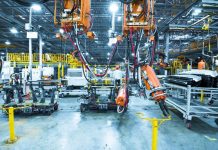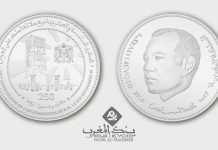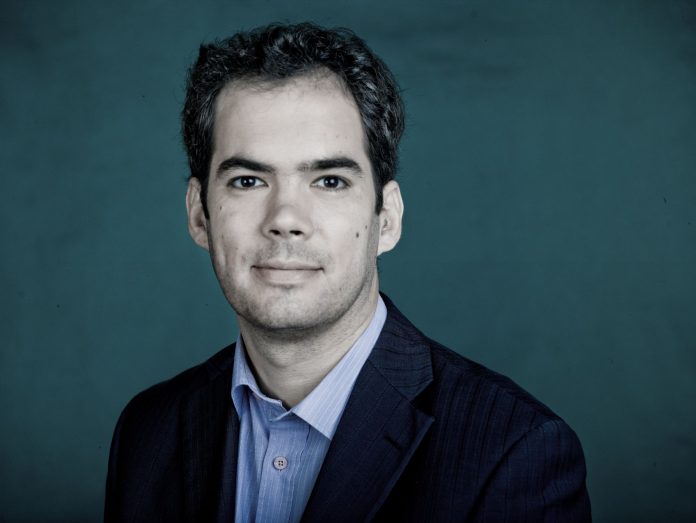An engineer by training, François Pyrek has had an exclusive career in environment. After fifteen years in the water sector in France and Eastern Europe, he was appointed CEO at SUEZ for recycling activities and recovery of waste in Morocco, in September 2012. In this interview, he delivers to IDM his views on waste management in Morocco. Interview by Said Zinnid
Since arriving in Morocco, what was the major goal of your mission?
In Morocco, Suez Recycling and exploiting, has three activities. First,its original, regarding waste collection and urban cleaning. The second sector, that we started in 2008, is that of the management of industrial waste. The third area concerns the treatment, ranging from rehabilitation of uncontrolled landfills, design, construction and operation of disposal and recovery of household waste centers.
Upon my arrival, my goal was, first, to develop our industrial services in the management of their waste and, secondly, to offer communities our solutions in recovery of their household waste.
In a few years, the country has made a major change to achieve its project of a green Morocco, Suez wished to accompany the Kingdom in the implementation of this policy.
It is in this sense that we conducted a project of recovery of household waste in Meknes.
Following this point, what is Suez’s point of view on the management of industrial waste in Morocco?
There’s, on one hand, large groups with a clear environmental policy; with ISO 14001 certification These companies, in line with their parent House, structure their management of waste. Suez accompanies them in their environmental and economic performance.
Our support to the Renault Group in the overall management of waste from its plants in Tangier and Casablanca is a perfect example. Furthermore, Suez supports small producers present geographically, specially in the two most important industrial centers in Morocco, such as Casablanca and Tangier.
For such enterprises, we provide customized services such as waste disposal or the establishment of skips, compactors. This type of services is growing more and more, mainly because informal was very present in some industrial areas. We have seen a change in the environmental awareness of SME managers.
In this sense, our business has evolved considerably, doubling over five years.
Do you think that small businesses operating in the industrial sector are very sensitive to the management of their waste?
These companies are indeed very sensitive to the management of their waste, while seeking the optimum in terms of economic competitiveness. In this sense, Suez offers them support combining environmental and economic performance. However, we note that an effort to raise awareness and training on the importance of waste management and more generally to environmental issues is needed, particularly on the decrees on hazardous industrial waste on the importance of management of their waste and environmental issues.
What is your position relative to the Moroccan legislative component dedicated to industrial waste management?
We welcome the advances that have been made since 2015. Today, we must encourage and support even more application of decrees and sector structuring. There are to date numerous fields that need organizing (electrical and electronic waste, recycling of plastics for example) and a roadmap outlining the fields of priority to be developed in order to counter the problem of industrial waste management would have to be defined.
The industrial waste management in other countries was made on the long term. This will also be the case in Morocco by implementing this type of strategy.
In little time, Morocco will host the COP22. Suez has already taken part in the COP21 held in Paris. What can you tell us about that?
For SUEZ, the fight against climate change is a priority. As part of its Sustainable Development road, the Group had already set targets for reducing greenhouse gas emissions and preserving water resources. In 2015 and in continuation of the efforts, SUEZ has made 12 commitments for climate, shared solutions and participated in collective initiatives, in particular in favor of water resources at the COP21.
The next Conference of the Parties to be held in Marrakech in November is a crucial event, which should turn the decisions made in Paris last December into a real agenda for action. The initiative “Triple A: Adaptation, Agriculture, Africa” carried by the Moroccan Presidency of COP22 sets the tone. It highlights the Southern countries, the solutions that permit to respond to the consequences of global warming mainly on water and food. It will also promote multifaceted cooperation between the players … In the continuity of our business and our commitments to climate and resource, common goals, we will be at the rendezvous.





















![[ELECTRICITE – ELECTRONIQUE – ENR] Ali El Harti : « Le Maroc, une solution très attractive »](https://industries.ma/wp-content/uploads/2024/03/Ali-El-Harti-1-1-218x150.jpg)
![[ENR – EFFICACITE ENERGETIQUE] Fouad Elkohen : « Pour 2024, on est très confiant au niveau de la fédération » Fouad-Elkohen](https://industries.ma/wp-content/uploads/2024/03/Fouad-Elkohen-218x150.jpg)
![[Aéronautique] Afaf Saidi : « Faire du Maroc un centre d’excellence pour l’industrie aéronautique » Aéronautique-Afaf-Saidi-Faire-du-Maroc-un-centre-d-excellence-pour-l-industrie-aéronautique](https://industries.ma/wp-content/uploads/2024/03/AFAF-SAIDI-218x150.jpg)
![[PHARMACEUTIQUE] Layla SENTISSI : « Nous allons décupler nos efforts » LAYLA-SENTISSI](https://industries.ma/wp-content/uploads/2024/03/LAYLA-SENTISSI-218x150.jpeg)
![[MOBILITE ELECTRIQUE] Omar El Harti : « L’Etat veut avancer rapidement » Omar-El-Harti-Secrétaire-général-de-l-Association-du-Secteur-électronique-(ASL)](https://industries.ma/wp-content/uploads/2024/03/Omar-El-Harti-1-218x150.jpeg)







